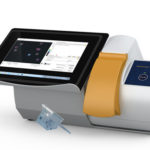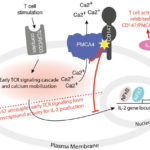Tag Archives:T cell
Image Cytometer – NucleoCounter® NC-3000™
NucleoCounter® NC-200™ – Automated Cell Counter
How Vitamin C affects the immune system
Zinc – A beneficial player in autoimmune diseases
Aberrantly methylated DNA regions in IgA Nephropathy patients affect the disease
Special molecular mechanism makes CD147 an interesting drug target in cancer or autoimmune diseases
Vitamin D and T cells in multiple sclerosis: how to measure an effect?
Multiple sclerosis (MS) is an inflammatory disease of the brain, leading to disability in patients suffering from this disease. A type of white blood cells, T cells, are important pathogenic cells which drive this inflammation in early
The stromal vascular fraction: a regenerative reality?
In 2001, researchers discovered that fat tissue contains stem cells, which they termed adipose derived stem cells (ADSCs). To obtain these stem cells, fat tissue is taken from the abdomen of healthy adults undergoing liposuction and processed











